

Whether recruiting and training employees or handling benefits and compensations, good HR requires significant time and resources. As a small business owner or employee — you likely have little of either. Thankfully, on the market today, there are a number of HR software tools and services. Many of these are designed specifically for startups and can make running HR a breeze at a low cost. In this breakdown, we'll take a look at 5 HR software tools available in 2023, highlighting their pros, cons, and standout features for HR teams of all sizes.
Startups and small businesses are highly fluid organizations that need to grow rapidly. If they fail, they need to fail fast and adapt without wasting time on lengthy hiring procedures. As a result, startups tend to disregard the structured HR practices that larger, more established companies use.
However, this often leads to more harm than good. Employees, just like customers, are important to your business and need to feel valued. Therefore you need a tool to efficiently manage your employees from recruitment to onboarding and ultimately, retirement or termination. All things considered, human resources software is an invaluable addition to the modern HR department.
Why do startups and small businesses need HR software?
HR software helps you to quickly and easily create a powerful, structured HR system. Additionally, most of these software conform to standard HR guidelines and help you follow them when creating your workflow. Other reasons why startups and SMBs need HR software include:
1. For hiring employees
HR software provides an interface to create job roles and advertise them. It also organizes all candidate information in a secure central database so that recruiters can access it easily. Furthermore, you can use HR software to communicate with candidates and organize interviews.
2. For managing and onboarding employees
HR software helps you efficiently manage employees and keep them happy. It's used to compensate workers and organize training. Furthermore, HR software provides an overview of employee records, job roles, and direct superiors. Some double as payroll software to help you organize wages, salaries, and taxes.
Examples of how small businesses use HR software
Small businesses primarily use HR software to advertise jobs and increase their human capital. Nevertheless, HR software can find other uses in a small-scale enterprise-some of which include:
1. Recruitment and Onboarding
Human Resources software help to digitize the hiring process. They can be integrated with social media platforms like LinkedIn, Facebook, and Twitter, where job seekers are most likely to come across job posts. In addition, HR software assists recruiters during interviews, assessment tests, and the general onboarding process.
2. Payroll Management
HR departments in small businesses use HR software to administer the financial records of employees, including salaries, bonuses, and compensations. They automate payroll processing, eliminating the manual compilation of employees' data for payment.
3. Performance Monitoring
Workforce productivity is a determining factor in the success of any business venture. Using HR software, employers can obtain an unbiased and transparent evaluation of individual productivity, attendance, and punctuality. A cardinal rule of business is that management can only be effective when performance is regularly monitored.
4. Time and Attendance Management
HR software assists the running of a business by offering full visibility of the attendance and absence of each employee. Most HR software have inbuilt Absent Management Systems to curtail absenteeism and assign corrective tasks.
5. Employee Engagement
Constant and unfettered communication between employees and management is key to maintaining a healthy working environment. HR software can help improve employee engagement through feedback forms, team collaboration channels, and questionnaires.
What features do startups need from their HR software?
Unlike medium to large-scale corporations, startups and small businesses have a unique set of human resource requirements. They are rapid growth by nature and need tools that can help them recruit new employees in the shortest time possible. These tools must possess certain characteristics that make them suitable for a startup. Some of these characteristics include:
1. Plenty of accounting, documentation, and payroll integrations
Startups use multiple business software, each with a distinct purpose. As such, good HR software must integrate with other business software or offer similar functionalities. This will ensure employee data is consolidated and synchronized across all platforms. For example, HR software can integrate with Zoho to manage employee payments and taxes.
2. Full feature set
A good HR software must possess a feature set that satisfies all your HR needs. It doesn't have to be an all-in-one solution, but its features must be affordable and cheap to upgrade.
3. Easy to use
Having a full feature set is important for any HR software. However, all those features are nearly useless if the average small business owner finds it difficult to use them. A good HRM must be easy to use and set up. It should also have adequate customer support to help you with the difficult portions.
4. Job posts and e-signature handling
Your choice HR software must provide facilities for advertising your job postings through integrations with job boards or social media. It must also provide e-signature functionalities on your documents so that candidates can append their signatures on offer letters
5. Low Cost
As a startup or small business, you need to effectively manage your capital if you hope to stay afloat. Consequently, when choosing HR software, it would be best to look for low-cost options that you can afford. Low cost doesn't always imply low quality, so you should ensure you're getting your money's worth.
What types of HR software are there?
There are three major types of human resources software. Each performs specific HR functions and often exists as standalone software. However, some HR tools combine these three types of software into a single all-in-one solution.
1. HRIS Software
The Human Resources Information System (HRIS) software serves as a database of all employee data and records. It tracks and analyzes their personal information, job roles, payroll data, benefits, and other relevant information. It's an excellent data source for business planning and decision-making
2. Talent Management Software
Talent management software is used to attract, select, hire, and develop new employees. It manages and optimizes the entire hiring process, to meet the human capital needs of a business organization.
3. Benefits Management Software
This HR software helps manage employee benefits and compensations, such as health and dental plans, 401(K), and workplace hazard allowances. Most benefits management software offer self-service portals that allow employees to view and manage their benefits.
Quick Comparison of the Top 5 HR Software for Startups & Small Businesses
| Software | Intro Price | Differentiator |
|---|---|---|
| Bamboo HR | $59 | All-in-one, full-featured HR software |
| VIVAHR | $70.83 | Comprehensive applicant tracking system |
| Bambee | $84 | Comes with a dedicated HR manager |
| GoCo | $5 | Flexible employee management tools that can be customized |
| Gusto | $40+$6 | Offers high-quality payroll software |
The Top 5 Best HR Software For Startups Are
1. BambooHR
Founded: 2008
HQ: Lindon, Utah, United States
| Key info | Free plan: No Trial: 7 days Support: phone & email |
|---|---|
| Best for | Small businesses requiring a comprehensive software HR solution |
| Pros | + Simple design and navigation + Can be set up and implemented in less than a month + Fully digitizes HR work and reduces paperwork, saving time and cost |
| Cons | - Some settings can be complicated - Some users have reported limited customizations available - Doesn't integrate well with other software |
| Integrations | Zapier, Indeed, CloudPay, and many more | Pricing model* | On quotation |
Few software can match up to BambooHR regarding its sophistication and amount of human resource management tools offered. It's specifically tailored for small businesses and those working within them. With an extensive client list consisting of companies like Squarespace, Klout, and FreshBooks, it's unsurprising that Bamboo HR is at the top of this list.
BambooHR's Applicant Tracking System (ATS) is extremely useful in the hiring and onboarding of new employees. It provides a dashboard view of all existing job openings and allows you to create ones. In addition, BambooHR organizes all candidate data in a single location, with filtering and sorting functionalities. It also allows you to rate candidates based on a five-star system and displays their last email correspondence.

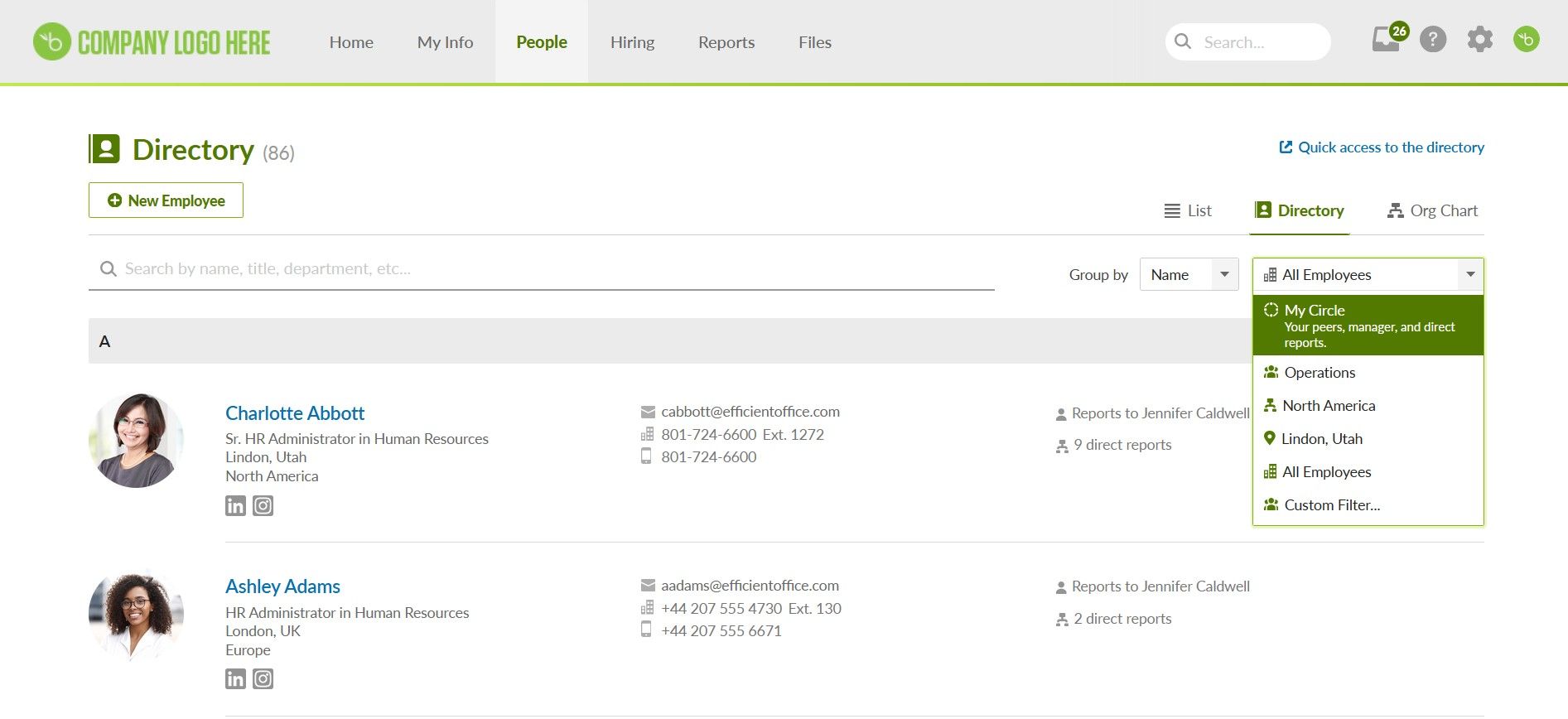
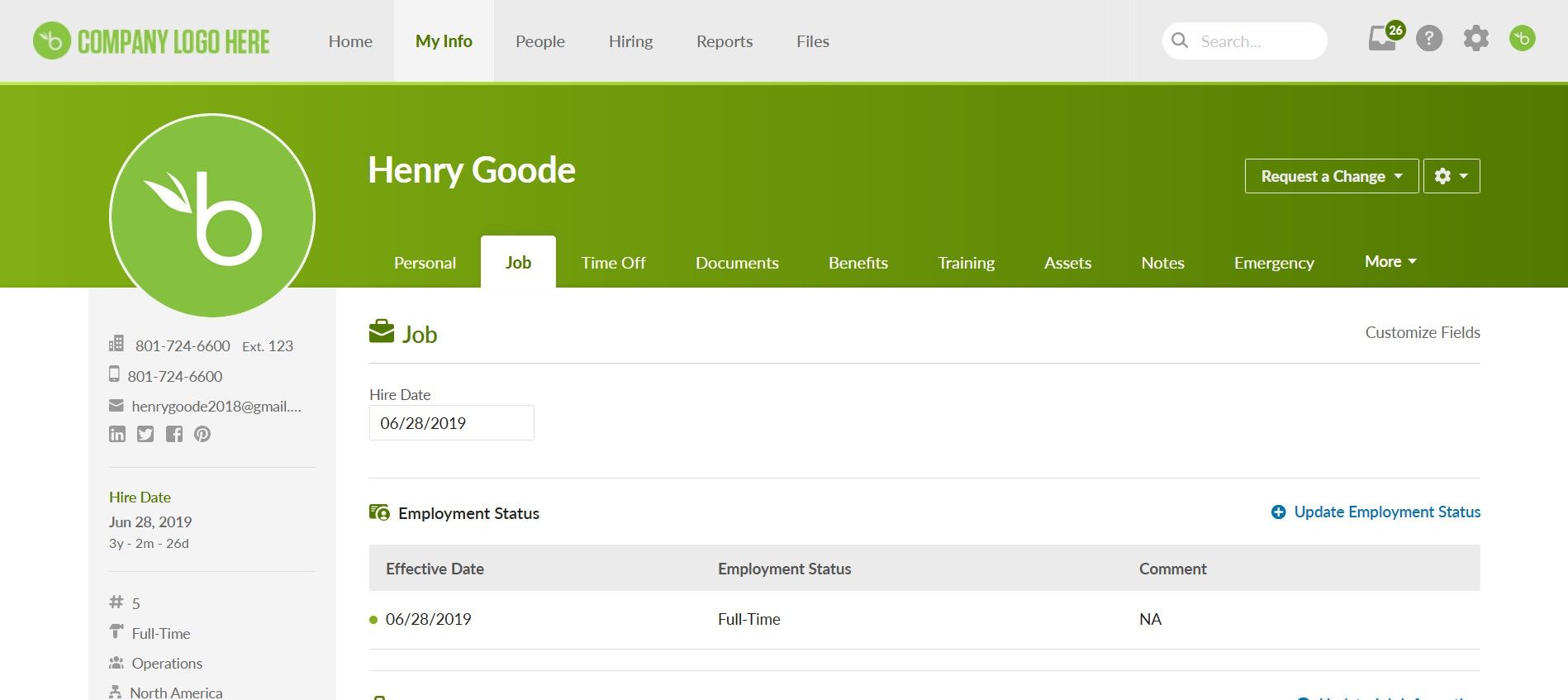
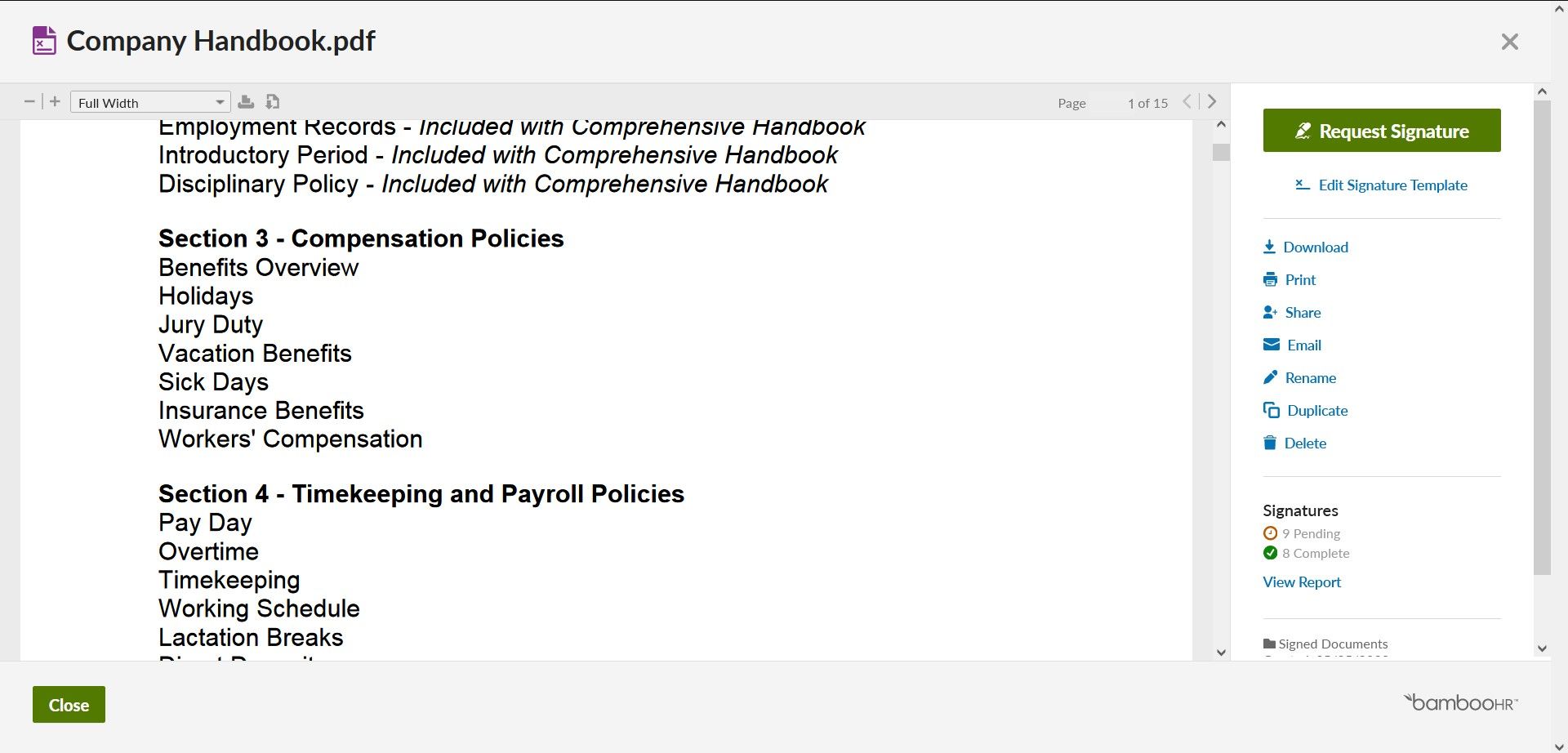
BambooHR provides all the tools needed to manage employee records and payments, eliminating the need for third-party software. It's built like a CRM, but for business owners and their workers. To that end, BambooHR's employee directory stores all relevant data for each employee in your organization. It tracks all their documents, time offs, benefits, training, and company assets. What's more, BambooHR's self-service features allow employees to track the time spent on activities and input their work hours from their mobile devices.
BambooHR also provides intuitive payroll software to make your accountant's life easier. While the payroll features are tailored for US employees, they adapt well to any location and are especially useful for remote workers. The software eliminates most accounting errors by allowing accountants to skip double entries of wages, account numbers, and other accounting information. It automatically handles each US-based employee's local, state, and federal taxes.
With a starting price of $5.25 per month, BambooHR's wealth of features makes it a very affordable software for startups and small businesses. Moreover, you can opt into the highest subscription tier and unlock all of its features without breaking the bank.
2. VIVAHR
Founded: 2016
HQ: Phoenix, Arizona, United States
| Key info | Free Plan: No Trial: 7 days Support: phone & email |
|---|---|
| Best for | Startups looking to scale up and hire more employees |
| Pros | + The interface is easy to use and navigate + Post jobs to multiple job boards with the click of a button + Useful in-built communication tools |
| Cons | - Lack of advanced features - Only basic reporting features |
| Integrations | Salesforce, Hubspot, GoodHire, and 860 other apps | Pricing model* | Starter: $129/month Grow: $179/month Pro: $279/month |
VIVAHR is a minimalist HR software for small to medium-sized businesses. It’s designed to fulfill only one role—applicant tracking and onboarding—and performs this task exceptionally well. VIVAHR simplifies the process of posting jobs and managing applications, making the hiring experience a pleasant one.
Unlike most other HR software, VIVAHR allows you to create branded landing pages that advertise your company’s values to potential recruits. It offers several templates that you can tailor to each candidate. And using the e-signature functionality, you can have them sign offer letters. Furthermore, VIVAHR collaborates with more than 50 job boards where you can post job listings to ensure maximum exposure.
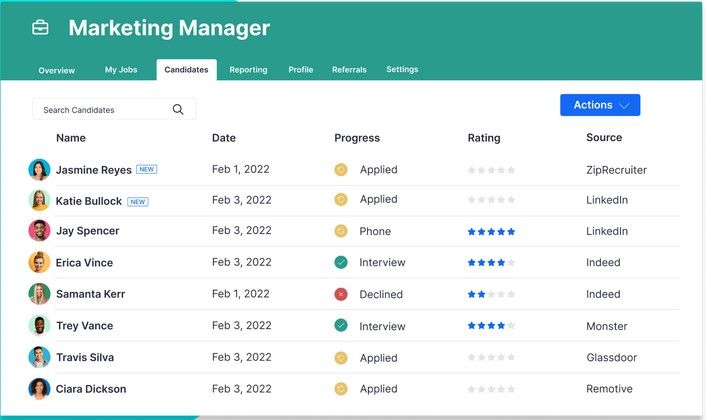
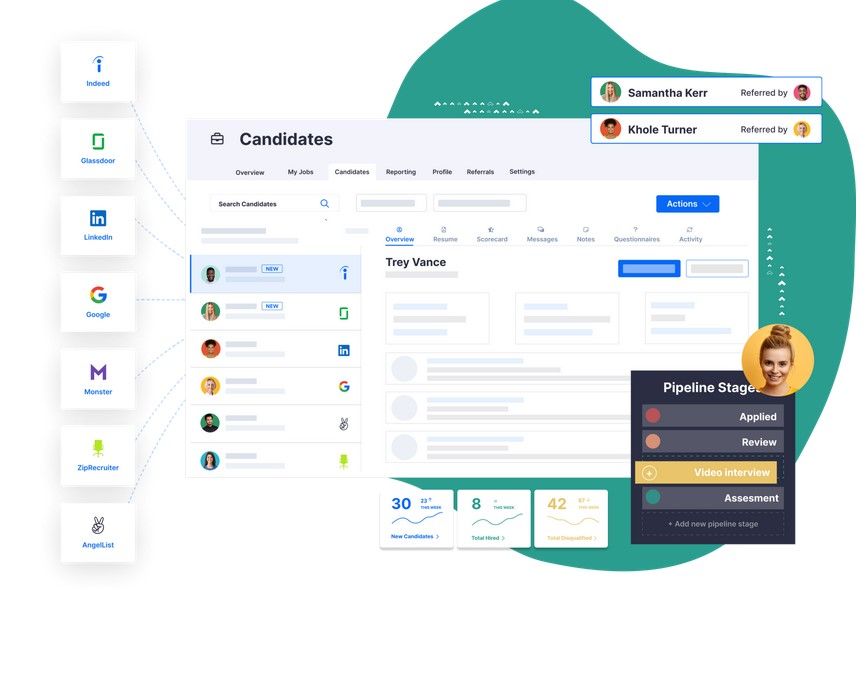
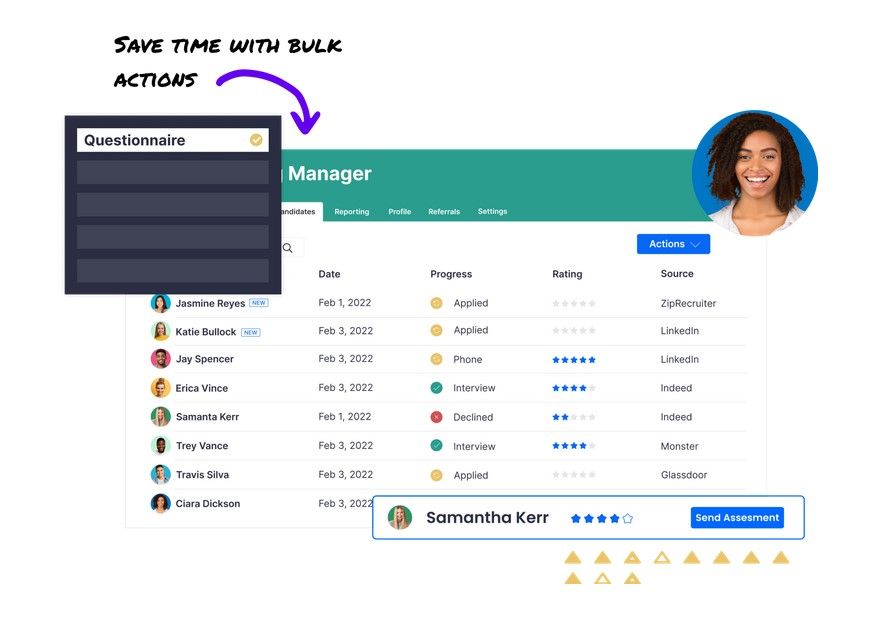
VIVAHR allows you to create custom hiring pipelines using an intuitive drag-and-drop builder. This makes it easy to add or remove stages so you can easily identify candidates with the required skills and qualifications. Also, VIVAHR helps to optimize the hiring process by creating multiple pipelines for an efficient workflow. These pipelines can be automated, allowing you to focus on other aspects of hiring.
You can send emails and text messages to candidates and recruits using the in-built communication tools VIVAHR provides. Additionally, VIVAHR’s powerful questionnaire tools allow you to create custom questions for each job listing. It offers various question types, including essay and multiple choice questions. But that's not all. After sending out questionnaires through the bulk messaging tool, VIVAHR automatically collects responses and ranks candidates using your custom scorecard.
Startup founders may be dismayed by VIVAHR's hefty starting price of $129. considering the narrow range of functionalities, this may seem far from a bargain. However, VIVAHR's hiring and onboarding tools are unparalleled by any other software on this list and have undoubtedly contributed to VIVAHR's excellent ratings on G2. While the limited features may be a problem for some users, most customers are content with the available ones. A satisfied user reports that:
“The job posting experience is beautiful. Very easy to use and has everything I need at my fingertips to make it a wonderful experience.”
3. Bambee
Founded: 2016
HQ: Los Angeles, California, United States
| Key info | Free Plan: No Support: phone, email, & chat |
|---|---|
| Best for | Businesses that want to outsource their HR at a low cost |
| Pros | + Dedicated HR manager + Pre-made policies that are HR compliant + Policy templates are easy to customize |
| Cons | - Customer support is erratic, with long wait times and canned responses - Requires frequent human intervention - The dedicated HR manager keeps changing |
| Pricing model* | Based on the number of employees, has an additional $500 in-depth HR setup fee |
Bambee is the only software on this list to include a dedicated HR manager in its package. For just $99 a month, you can run the software on autopilot, saving you the costs of hiring an in-house manager. Bambee offers three main features: autopilot, manager, and guided payroll.
The HR autopilot performs audits to help you identify any lapses and gaps in your HR practices. It ensures your business is compliant with all standard HR policies. Similarly, it helps your employees remain HR compliant through training and certifications. Moreover, it provides a platform for employees to offer feedback either publicly or anonymously.
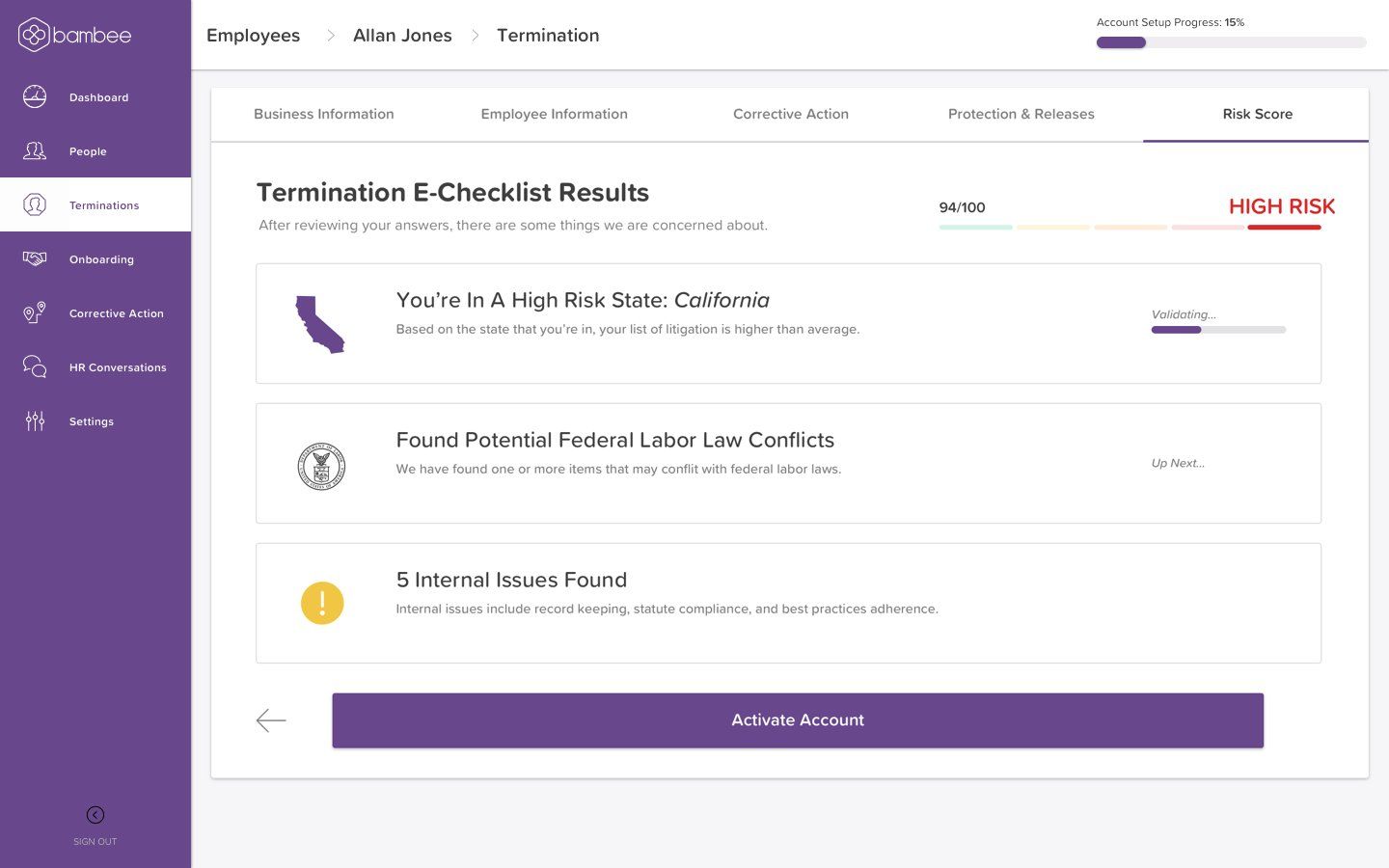
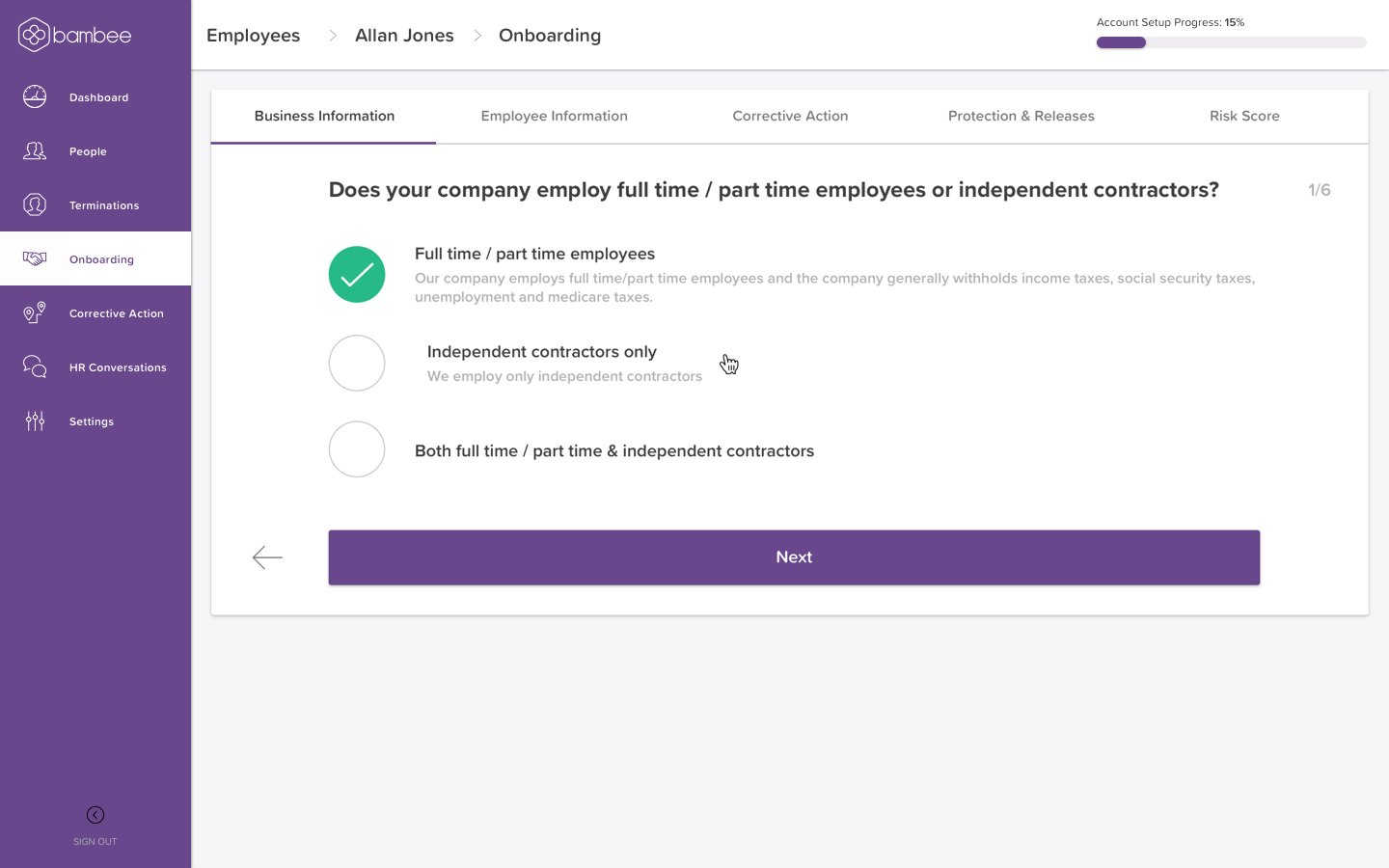
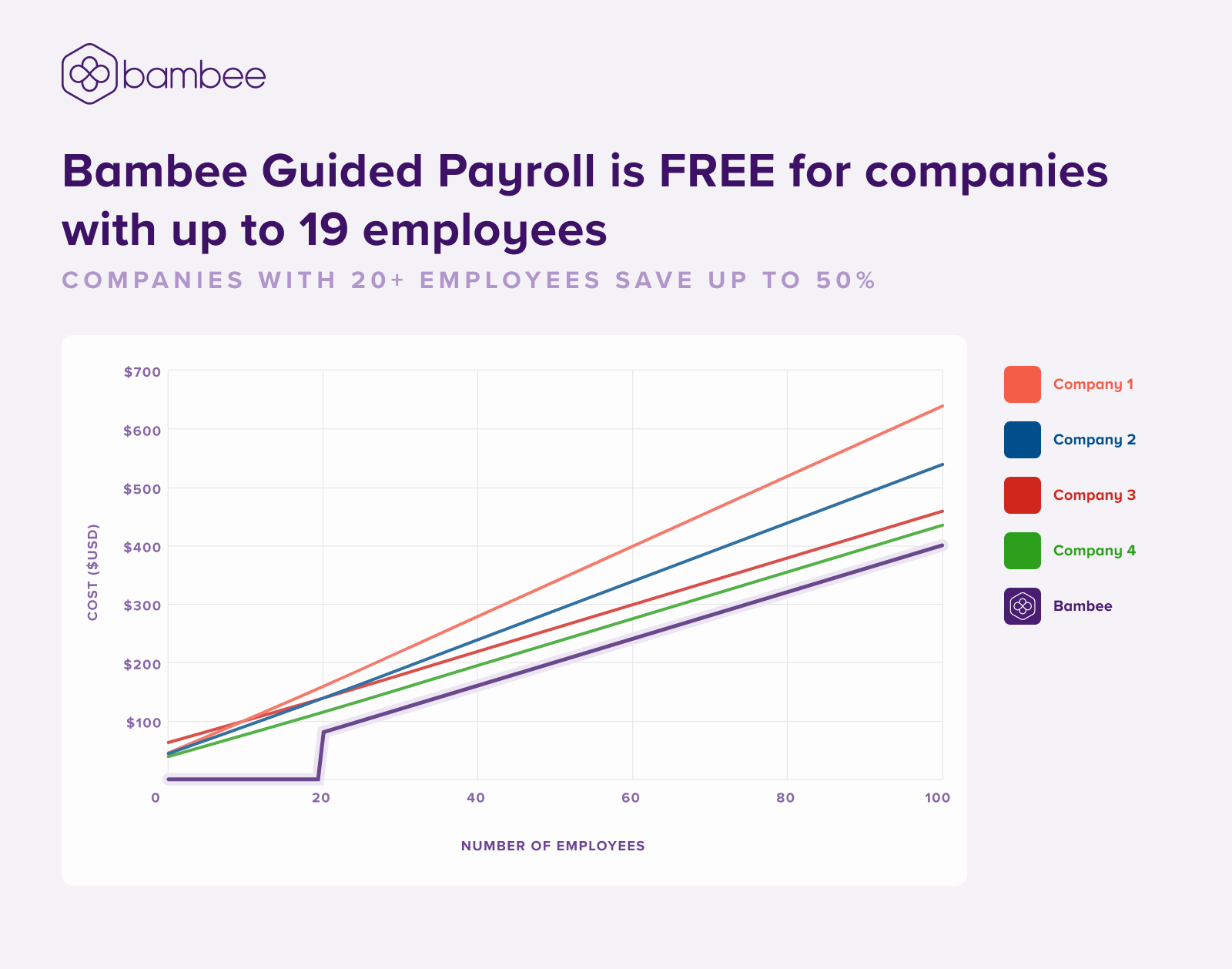
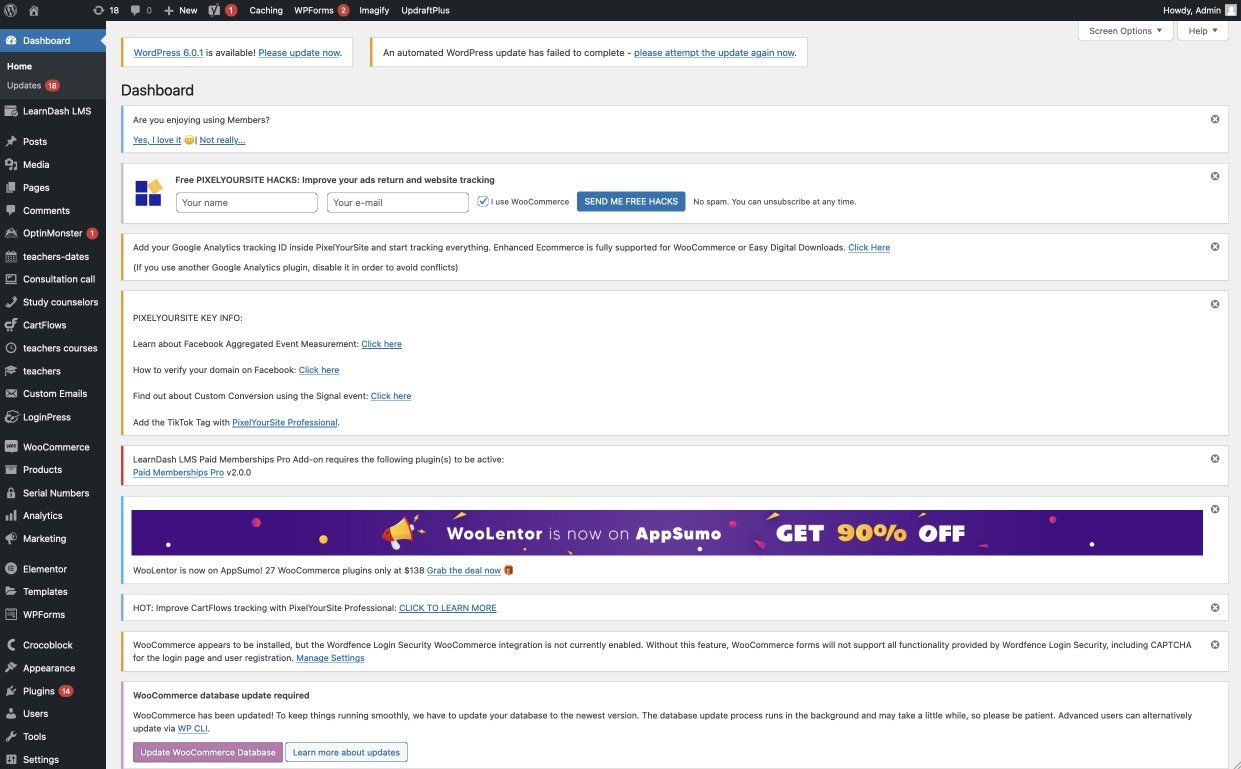
Bambee's dedicated HR manager handles sensitive conversations and tries to resolve employee issues. They slot seamlessly into your workstream, helping you formulate and implement policies that match your business culture. Bambee's HR manager plays an active role in your business, taking on the responsibility of onboarding, termination, and disciplinary action. Consequently, you can direct your efforts and attention to other important tasks.
Finally, Bambee’s guided payroll ensures that your employees are paid promptly. It automatically handles their local, state, and federal taxes. This feature is an optional add-on only for Bambee clients, so you need the entire package to enjoy its benefits.
Customers have stated that the dedicated HR manager is easily the best thing about Bambee. Full of praise, they even mention each manager by name and thank them for their efforts. The personal touch is often hard to come by in digital space and is a huge point in Bambee's favor. Though a few customers on G2 and Trustpilot have complained about poor communication with their managers, customer support is often quick to allay their fears and proffer solutions to their problems.
4. GoCo
Founded: 2015
HQ: Houston, Texas, United States
| Key info | Free Plan: No Support: phone and email |
|---|---|
| Best for | Startups looking for a highly customizable, all-in-one HR system |
| Pros | + Excellent customer service that resolves all issues quickly + Intuitive onboarding and HR management system that eliminate all the tedious steps + Many customizable features |
| Cons | - May have a steep learning curve - Reported difficulty handling edge cases |
| Integrations | QuickBooks, Paycom, Workforce Now, and many more | Pricing model* | $5 per employee/month |
GoCo is a fully featured software with several tools designed to handle every aspect of human resource management. It ships with HR compliance software that integrates with these tools to ensure a worry-free HRM workflow.
One of the first things you'd notice about GoCo is its competitive pricing. Starting at $5 per employee, GoCo allows you to create custom plans with your desired tools and features. One such tool is the automated new hire onboarding platform that helps you make a positive first impression on new employees. This platform is entirely digital and even includes e-signatures for online documents. What's more, new hires can sign up for self-service and benefits within minutes.
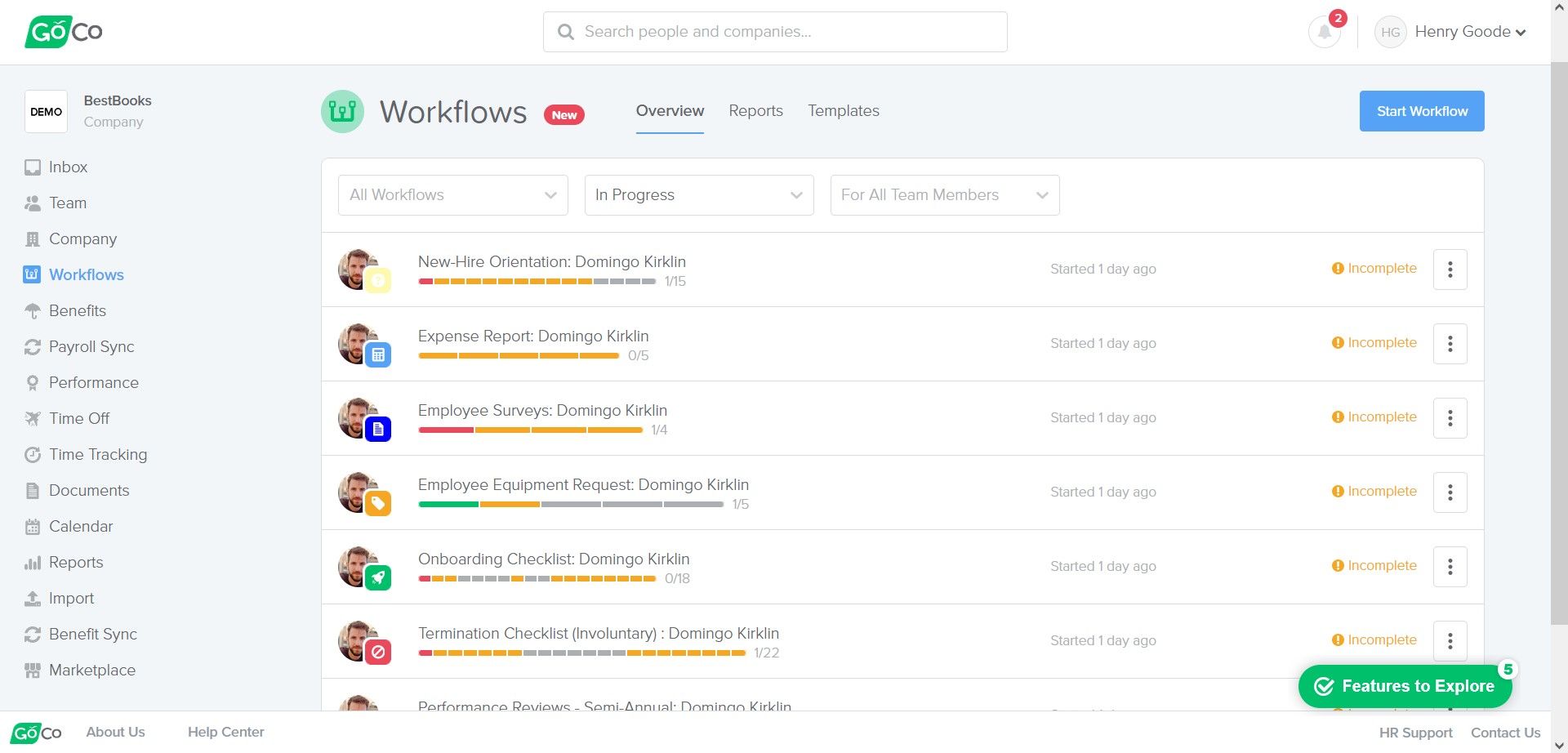
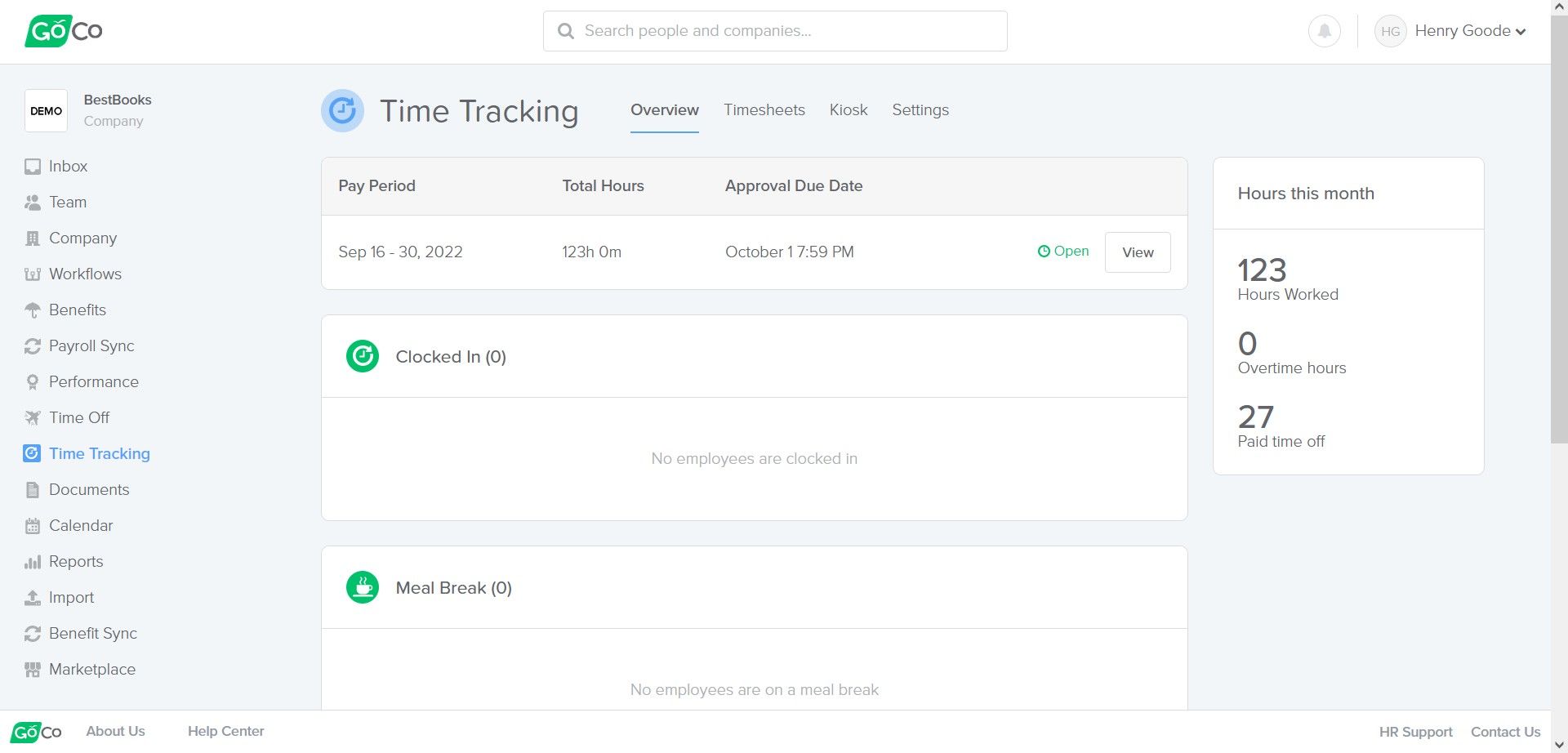
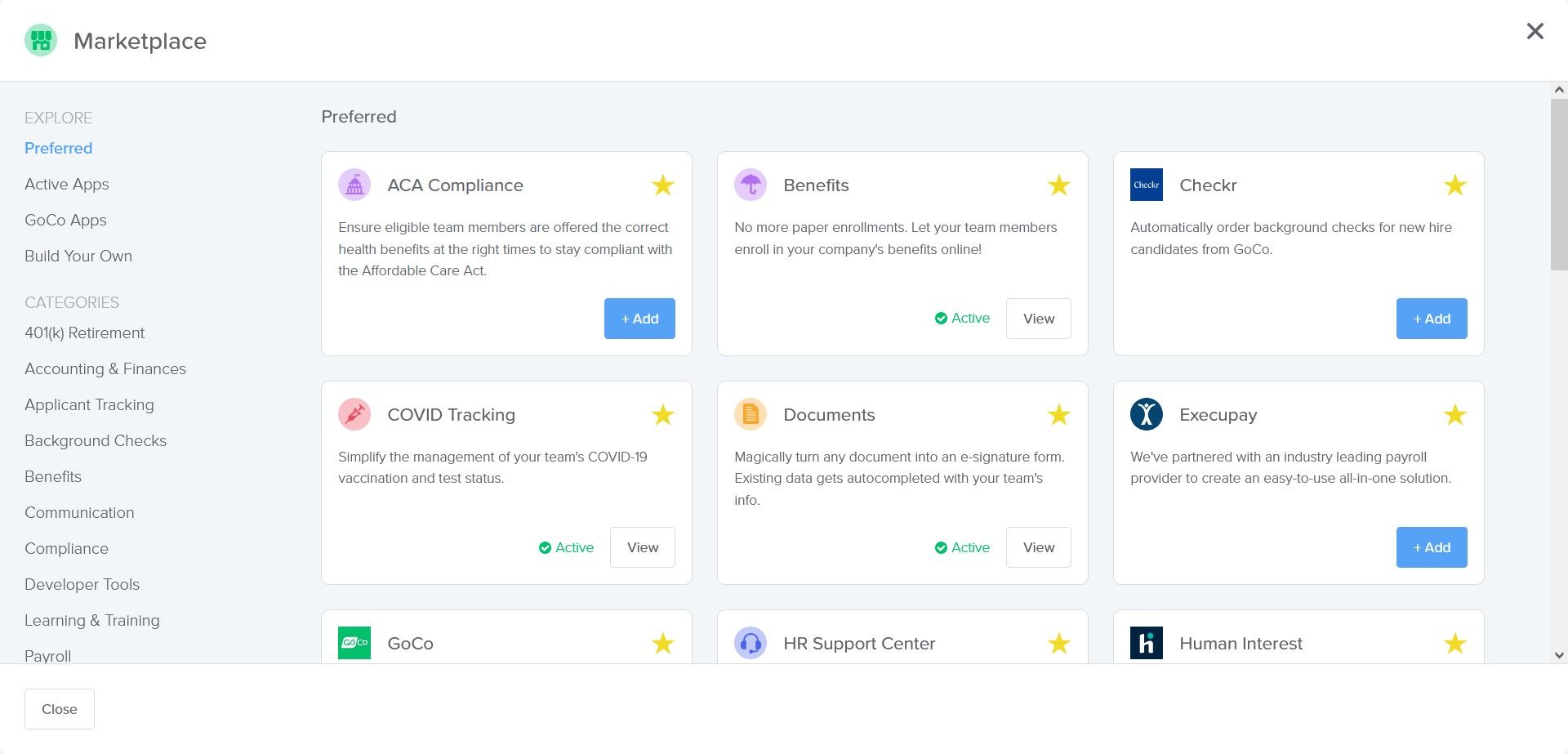

GoCo integrates with Quickbooks, Paycom, and several other payroll software, giving you a choice between its in-built payroll tools and your existing solution. As a result, the software streamlines the process of managing payments, benefits, and taxes, allowing you to do all benefits in one place. And if you ever get confused with the interface, trusted experts are on hand to help you avoid costly mistakes.
GoCo's time-tracking software replaces the punch-card system for clocking hours. It provides timesheets so that employers have maximum flexibility to decide how employees enter their time. In addition, GoCo automatically calculates overtime and adjusts for federal and state-specific rates. It also combines time tracking with other metrics to assess employee performance accurately.
GoCo is popular among small businesses because it offers only one subscription tier with no hidden charges or contracts. It also has high ratings on G2 and has been praised for its excellent customer support. Despite some initial criticism about its technical quality, GoCo has since improved and eliminated most of its bugs.
5. Gusto
Founded: 2011
HQ: San Francisco, California, United States
| Key info | Free Plan: No (Demo account to explore features) Support: phone |
|---|---|
| Best for | Businesses looking for a dedicated payroll HRM |
| Pros | + Has an easy-to-use modern interface for administrators and employees + Encourages employee engagement + Integrates seamlessly other Gusto tools and third-party software |
| Cons | - Benefits can be too high-end for small businesses - Slow implementation of new features - Customer support may lack expertise on taxation in many states |
| Integrations | ActiveCampaign, AccountingSuite, BreezyHR, TaxTaker, and many more | Pricing model* | Simple:$40/month, plus $6/month per employee Plus: $80/month, plus $12/month per employee Premium: Exclusive pricing |
Gusto is an all-in-one HR solution for fast-growing enterprises with a focus on benefits and payroll. With over a decade of experience providing HR tools, the SaaS giant has grown to support more than 200,000 businesses across the US alone.
Despite its primary function as payroll software, Gusto contains several hiring and onboarding tools. It allows you to create customized job posts, offer letters, and application tracking pipelines. Furthermore, it saves time in hiring through the onboarding checklist it creates for each new employee. Gusto provides several onboarding tasks by default and allows you to add custom items. It also sets up each employee with all of the company's tools, such as Slack, Microsoft Office, and Zoom.
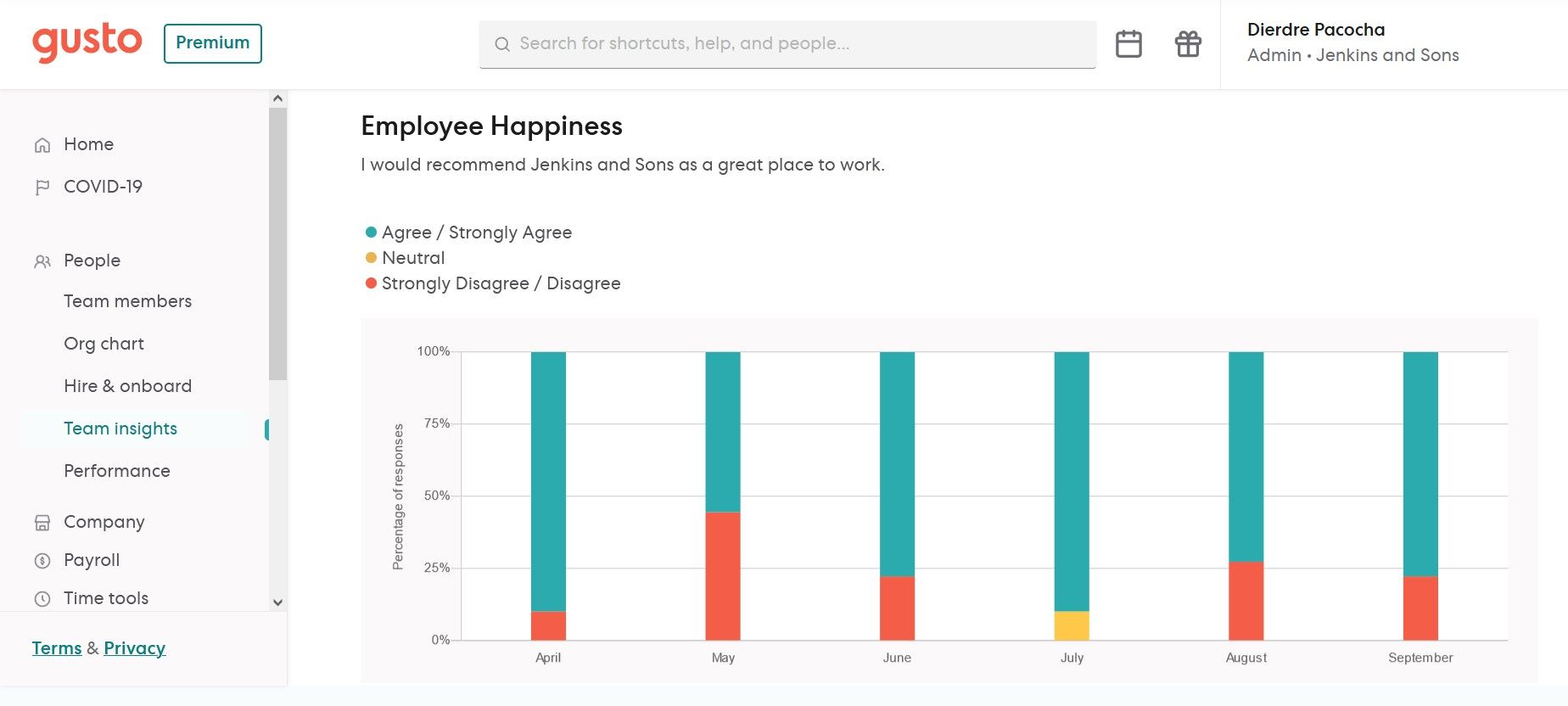

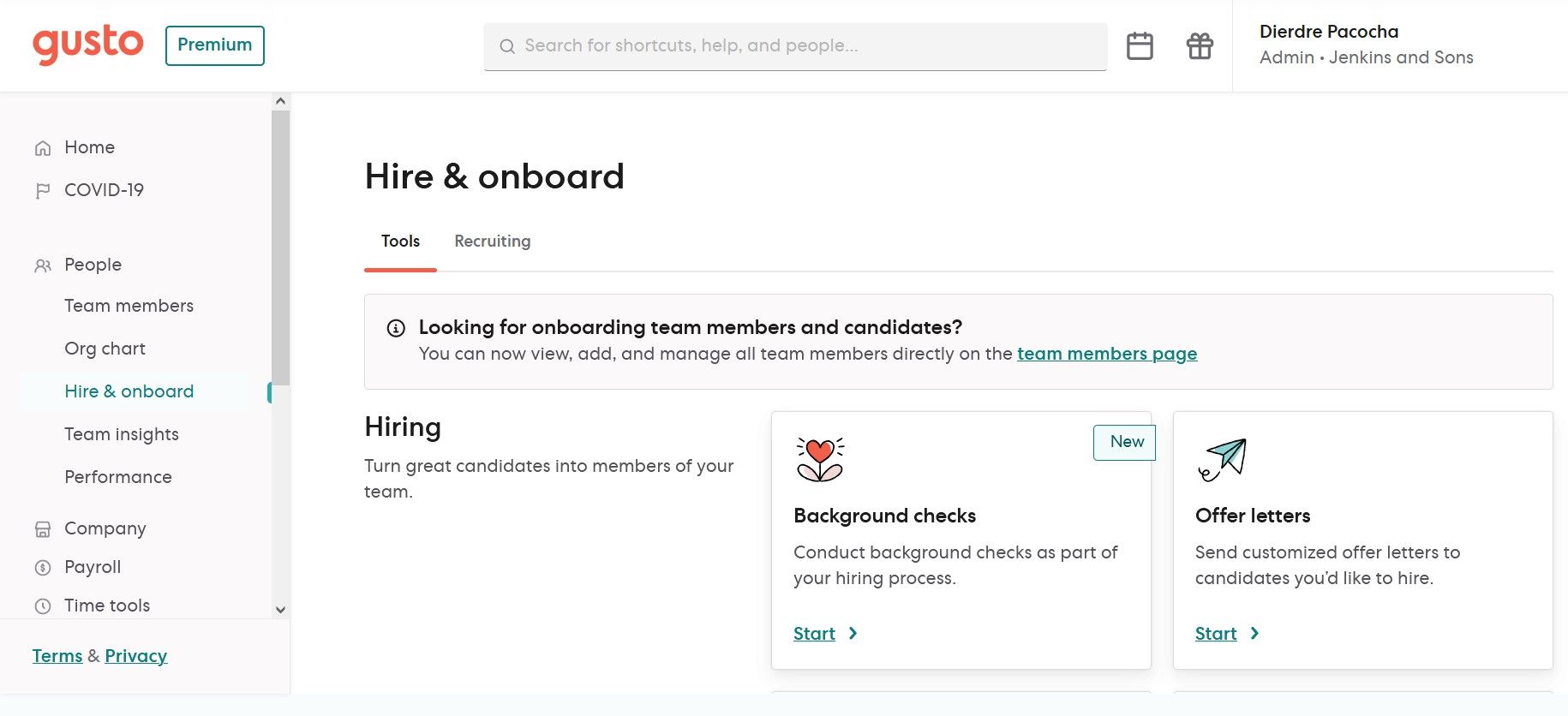
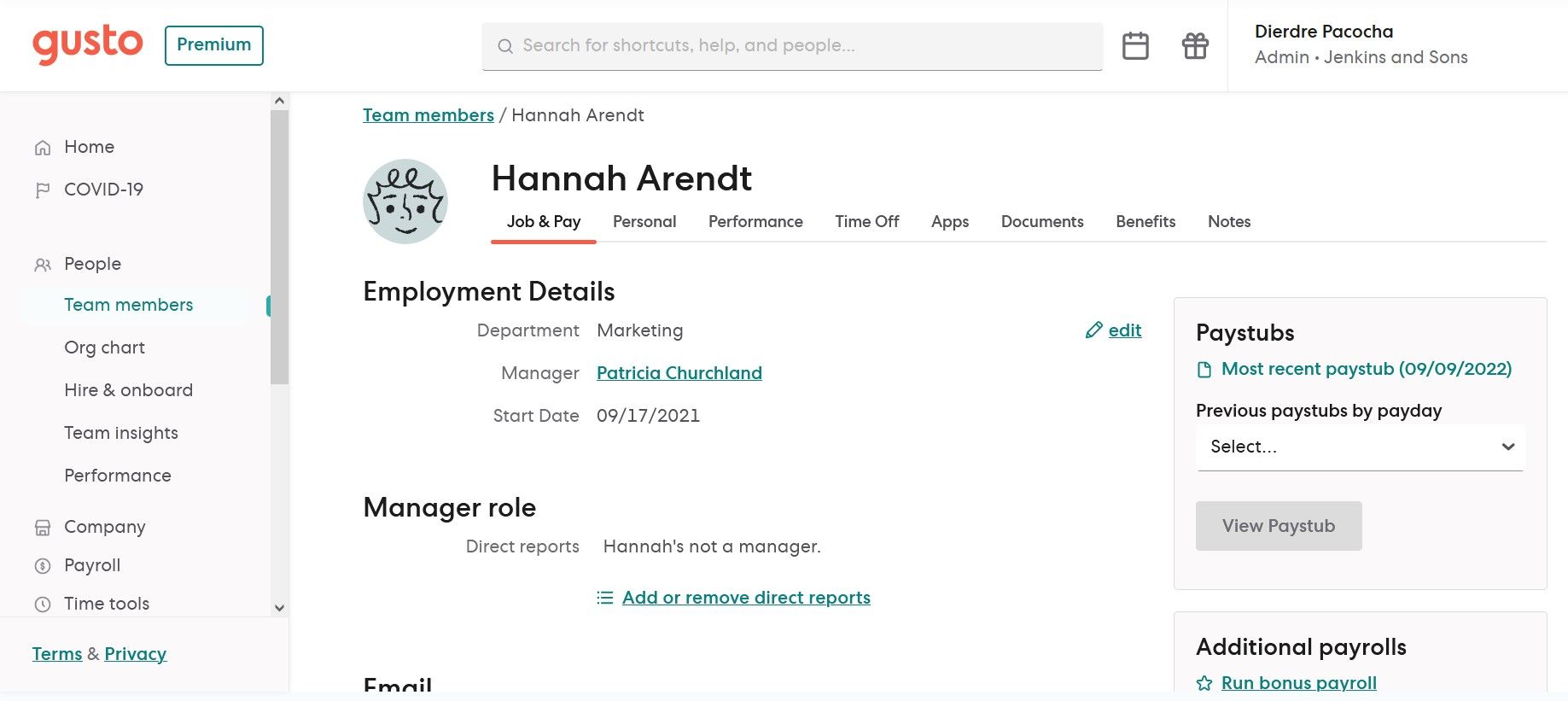
Gusto's time tracking features integrate with the payroll tool it provides. It tracks all time-offs, holidays, overtime, and regular office hours, so you accurately assess each employee's performance. Team members can clock in and out with a simple click on the mobile app. This app also includes geolocation tracking that allows you to designate locations where your employees can clock in.
Gusto contains several other tools, but its outstanding feature is the payroll software. This tool automatically files taxes with the appropriate government agency. It integrates seamlessly with all other Gusto tools and third-party software like QuickBooks. The payroll software can register taxes in all 50 US states and pay contractors in more than 80 countries worldwide. It's relatively easy to set up and contains several financial tools that make accountants' jobs easier.
More great selling points are Gusto's intuitive user interface, unlimited pay runs, and flexible payment schedules, making it a favorite among small business accountants. However, some useful HR features can only be accessed in the higher subscription tiers. These plans can be quite pricey for small businesses with a substantial number of employees. Yet, Gusto's ease of use, flexibility and numerous integration options have earned it high ratings on review sites.
How to choose the best HR software for your startup
HR software offers essential tools for enhancing the productivity of the Human Resources department and, by extension, the entire business. When choosing the right HR software, it's important to choose one that suits the requirements of your business perfectly.
Some HR software focuses more on simplifying the hiring process. In contrast, others are more interested in paying your workers and doing their taxes. On the other hand, some HR software are all-in-one solutions that perform multiple roles. Whichever you go for, ensure you're getting the best value for your money.
We've tested each software on this list and outlined their best features. But you don't have to accept our claims at face value. It would be best to corroborate our opinions with customer reviews from trusted sites. Moreover, if you have the option, you can enroll in a free trial, or schedule a demo to get a feel for the software.
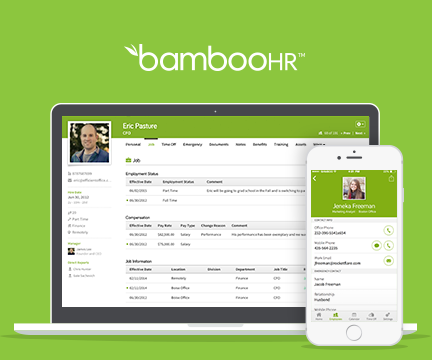
Our Pick - BambooHR
BambooHR's full feature set, including the applicant tracking system, payroll tools, and affordable starting price, makes it Toksta's best HR software in 2023.

Meet the author
Sam Cassman is a seasoned growth marketer with over 10 years of experience as growth marketer for startups and small businesses. He is the founder of Toksta, a research technology company that helps businesses find and purchase the best software and SaaS. Sam has also run his own growth marketing consultancy Honest Growth, where he helped numerous clients to grow their businesses, including Eventcube, Baluu, Obby, and NBM Group.

